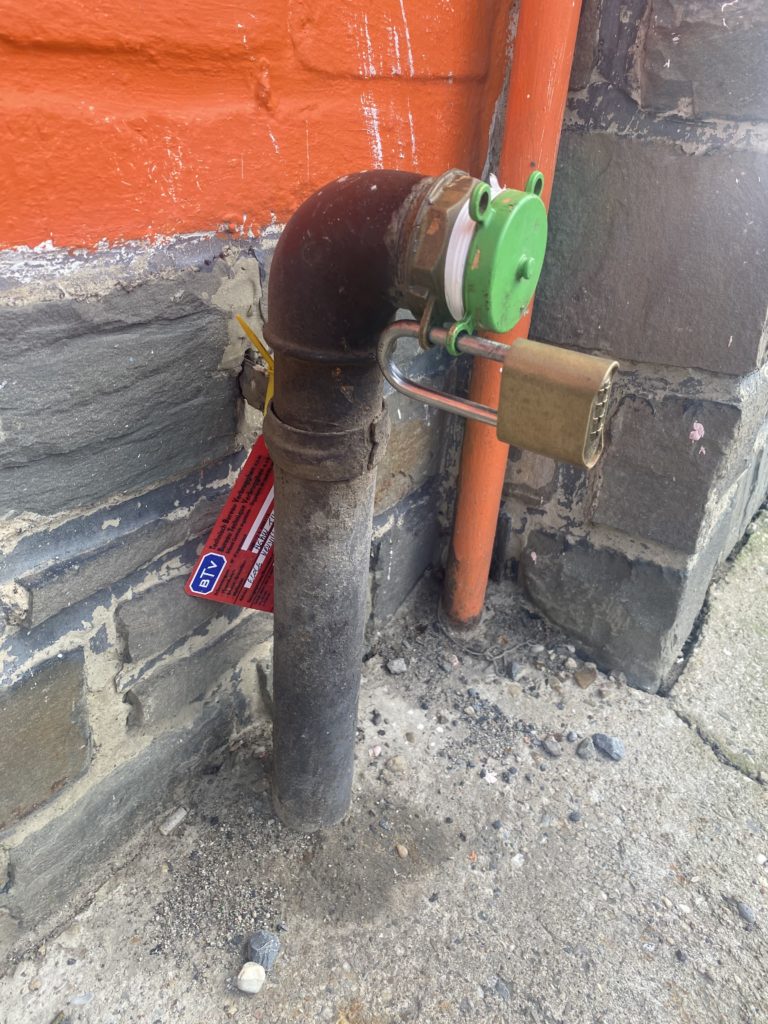Copyright Fullup SPRL — 2025
The effective management of fuel oil consumption for all its buildings is a real challenge for every municipality. There are, however, practical and easy solutions to help them. The municipality of Neupré has recently adopted the connected gauge solution from FullUp. Charles-André Verschueren, alderman of Finances, Sports and Energy of the Municipality of Neupré, and Quentin Lagaeysse, Energy Advisor of Neupré, explain why.

Why did you adopt the connected gauge?
Charles-André Verschueren: We would like to have better control of our energy use, and in particular fuel oil, within the municipaladministration of Neupré. One of the difficulties is that we manage many sites which are relatively far apart from each other: schools, swimming pool, sports hall, municipaladministration, Public Social Welfare Center buildings… These require 14 fuel oil tanks for a total storage capacity of 150,000 liters. As a general rule, we operate with approximately 50,000 liters of fuel oil on hand, which represents an asset of about €30,000. With due diligence, we have asked ourselves many questions: Do we use this fuel oil efficiently? Can we optimize the regulation of our heating installations? Are there thefts of fuel oil?
Quentin Lagaeysse: Until a few months ago, our consumption chart was the result of the good will of the various managers in charge of manual monthly readings. Concretely, it is practically impossible to obtain readings from everyone on fixed dates. Also, these readings lack precision and are expensive in terms of time on an annual basis.
What type of solution were you looking for?
Quentin Lagaeysse: The technical specifications demanded, on one hand, the ability to monitor consumption remotely on a regular basis and, on the other hand, to access this data through an online platform. We needed access to the data in real time, while the ability to export consumption for precise time periods was absolutely necessary to formulate a precise energy registry of all our buildings. We also needed a tool which we also wanted to use to improve the management of our inventory.
Charles-André Verschueren: We organized a public tender (with the only requirement to be able to monitor fuel consumption), which was won by FullUp. A few weeks later, our 14 fuel oil tanks were equipped with connected gauges. The operation took place in November 2019.
What are the initial results?
Charles-André Verschueren: The installation is relatively recent but the solution has already enabled us to identify two consumption ‘anomalies’. The system detected a consumption of 2,000 liters of fuel oil during the year-end vacation when the boiler should have been turned off. It was evidently a problem regarding management of the installation. At another site, we observed suspicious consumption of tens of liters of fuel oil within an hour. Here, it’s in all likelihood related to theft. The FullUp probe is thus also a tool enabling us to dissuade fuel oil thieves.
What about the cost of the investment and the financial return?
Charles-André Verschueren: The investment is trivial in light of the amounts we’re dealing with. We also considered this to be a quick win. Before, the monthly manual readings cost us practically €2,500 per year yielding a result which was not easy to use. We calculated that the investment would be recovered in less than three years based on the most pessimistic scenario. In reality, the return will be much faster because the detection of anomalies already enables us to achieve significant savings quickly. Imagine the savings just for the schools! Do the calculation of how many liters of fuel oil we waste on days when schools are closed. This is only the first step.
What are the next steps?
Charles-André Verschueren: Thanks to the data collection, we are able to formulate consumption graphs and to compare the cycles on a precise basis. In addition to direct savings, we could also optimize our orders and perhaps obtain better prices. We will soon expand the methodology to our water and electricity use. Access to this data opens many doors. Soon, for example, the school will conduct a teaching project on the basis of the measurements of fuel oil consumption. One could also imagine some playful activities such as the display of consumption at the entrance to the sports hall and, why not, challenges to build awareness among inhabitants. The possibilities are enormous.
The advantages of Fullup according to Quentin Lagaeysse (Energy Advisor of the Municipality of Neupré)
1. Very simple implementation from a technical point of view because FullUp takes care of the entire installation. No need for specialized personnel, and no bother!
2. Remote, real-time access to the consumption for the entire group of fuel oil tanks. The system performs a measurement each hour and transmits the consumption data each day.
3. The ability to export consumption for a given period.